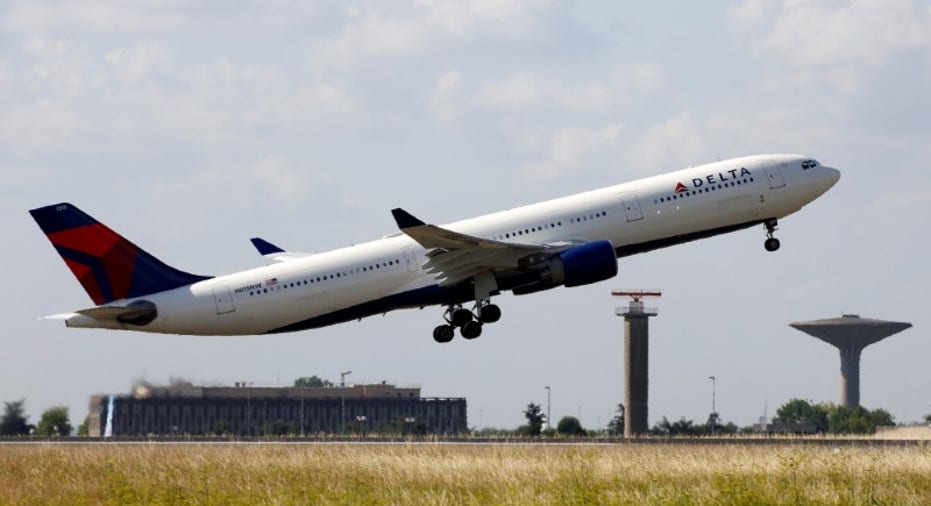Top airlines look to no-frills fares to win back travelers to Europe

An escalating fare war over the Atlantic is forcing big airlines to consider chopping prices, redesigning cabins and adding restrictions to win back budget-conscious vacationers drawn to upstart, low-fare rivals.
Delta Air Lines Inc is reviewing cabin layouts, fares and the rules that come with them for international flights, its President Glen Hauenstein said on a call with media on Thursday.
"The exercise we're going through is to see what do people really want to buy and what are they paying for it," Hauenstein said. "It includes all kinds of fare products; it includes cabins we don't have today."
The airline's marketing partner, Air France KLM SA , said last month that it was looking at every option to fend off low-cost entrants.
And U.S. rivals American Airlines Group Inc and United Continental Holdings Inc plan to roll out stripped-down fares for domestic travel, though a spokesman for American declined to comment on whether this would be extended to Europe, and United representatives did not immediately comment.
The moves by the big carriers follow a summer in which budget long-haul airlines, notably Norwegian Air Shuttle ASA , shook up the trans-Atlantic travel market by offering ticket prices as little as half what rivals charge.
Norwegian has said it can do this profitably because its labor costs are low and it flies some of the most fuel-efficient aircraft available.
Low-cost Icelandic carrier Wow Air also has taken market share from legacy airlines.
Those advantages will take time for legacy carriers to match, but Norwegian also has more economy seats on planes and charges for meals, seat selection and other amenities. Those tactics are easier for Delta and others to replicate.
The unbundling of amenities that come with a ticket is a move Delta deployed to compete with budget upstart Spirit Airlines Inc at home. In July, Delta said it plans to have the so-called "basic economy" product in all international markets in 2018, and a spokeswoman said Thursday that it already is on offer for some international destinations such as London and Glasgow.
FALLING REVENUE
Delta, the No.2 airline globally by passenger traffic, said Thursday that trans-Atlantic revenue fell 8 percent in the third quarter from a year ago. It attributed this in part to flights on low-cost airlines and luxury Gulf carriers like Emirates [EMIRA.UL] exceeding demand.
According to air travel intelligence company OAG, one-way flights on Norwegian across the Atlantic grew 44 percent to 2,916 this year, after increasing 34 percent in 2015. This includes new service between New York and Paris, a hub for Air France.
Norwegian's schedule is dwarfed by Delta's more than 22,000 trans-Atlantic flights, but the added service is undermining efforts by Delta and other legacy carriers to shrink trans-Atlantic capacity and firm up prices that have been falling.
The data reflects schedules as of Sept. 9.
The biggest U.S. airlines and unions have turned to regulators to ease the pressure.
For more than two years, the U.S. Transportation Department has yet to finalize approval of flights that Norwegian has petitioned to start under an Irish subsidiary, in part because many in the U.S. industry say it would undermine wages and working standards. Norwegian has disputed the claims. The European Commission is now seeking arbitration because of the delay.
Norwegian's Chief Commercial Officer Thomas Ramdahl has estimated that about 20 percent of the airline's long-haul passengers are snatched from rivals. The majority are choosing their European destinations in the first place because of Norwegian's low fares, he told Reuters in an interview last month.
(Reporting by Jeffrey Dastin in New York; Additional Reporting by Victoria Bryan in Berlin; Editing by Lisa Shumaker)



















